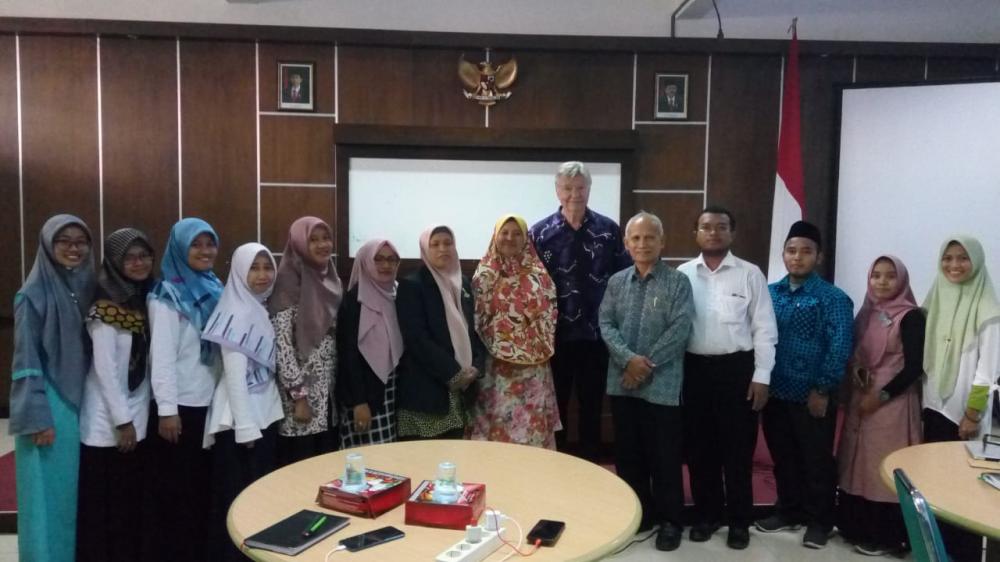PGMI ALSO BLESSED THE EVENT WITH A PROFESSOR FROM GERMANY.

Tuesday, November 19, 2019, the lecturers and the Head of the Study Program got the opportunity to listen to the information delivered by the German professor. Don't miss Dr Aninditya Sri Nugraheni, S. Pd., M. Pd., the Head of Education for the Islamic Elementary School Teacher Program, and Field Study students. Professor Thomas Unruh is a German professor who is a member of the SES (Senior Experten Service) organization. Thomas Unruh is a German lecturer who is well-versed in the State Islamic University of Sunan Kalijaga because he has frequently attended Sunan Kalijaga State Islamic University and has been asked to deliver new materials if necessary.
That afternoon, he was allowed to present a material titled "Enhancement of student learning process at Yogyakarta State Islamic University." He said that the Tridarma of Higher Education consists of Education, Research, and Community Service and that the professor wanted to integrate all three through Active Learning. A mini-research project is an activity used in the classroom. Students are instructed to create one basic research question. This strategy was used in a class of Dr M. Istiningsih with the leadership course for Islamic of Education Masters students Dr Naimah, M. Hum English course 1st semester. An example of basic research is "What can make someone a leader?" To conduct research, students conduct observations, interview with the headmaster, etc.
According to Thomas Unruh, learning involves more than just providing information in class, such as lecturers coming in and being handed material. Knowledge is not simply from lecturers; wisdom is not individual, especially now that the industrial era of 4.0 has begun. A student must have a fundamental research attitude, which includes a strong interest and the ability to do research. Thomas Unruh inspired all of the lecturers attending at the time. The discussion was informal and enjoyable; some participants reacted, asked questions, and requested feedback on previous learning and suggestions for future learning.
Like in previous sessions, Thomas Unruh always gives good material and is happy to share his experience teaching in Germany as input. Many lessons have been learned from the conversation with Thomas, including the ability to learn about different cultures, build skills, widen perspectives, and raise academic ideals, particularly in the sphere of education, to create a quality and quality generation in the industrial era. 4.0. Many positive responses came from Thomas's presentation, one from Dr Aninditya Sri Nugraheni, M. Pd. She said, "This kind of activity by presenting professionals in the field of research is very much required for lecturers and students since mini-research must constantly update information." The information presented is also quite interesting and helpful. The material covers how to do a good mini-research, give a good presentation, utilize the Google tool, and participate in online conversations. This type of activity, if carried out regularly and continuously, would impact the quality of research and scientific activities carried out by lecturers and students."
Furthermore, a positive reaction was provided by a Field Study student, Wahyu Iskandar, who is also the best student at PGMI, North Sumatra State Islamic University. He said, "Activities like these should continue to be supported in the higher education environment because they are beneficial for continually upgrading every current scientific subject,". It is hoped that the lecturers and students who participated in this program would be able to implement what they have learned in their respective sectors." It is only fair to keep updating each component about the constantly updated timings. It's interesting when it appears that the age has entered the Society 5.0 era, but our learning has yet to reach the Industrial 4.0 era.
Finally, quoting from one of the Yogyakarta Young Entrepreneurs, "keep going, slowly it's okay as long as you never stop."
